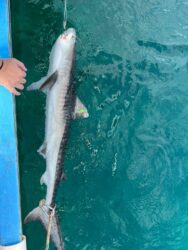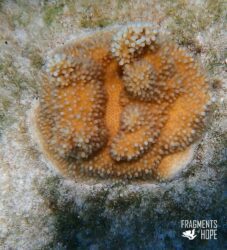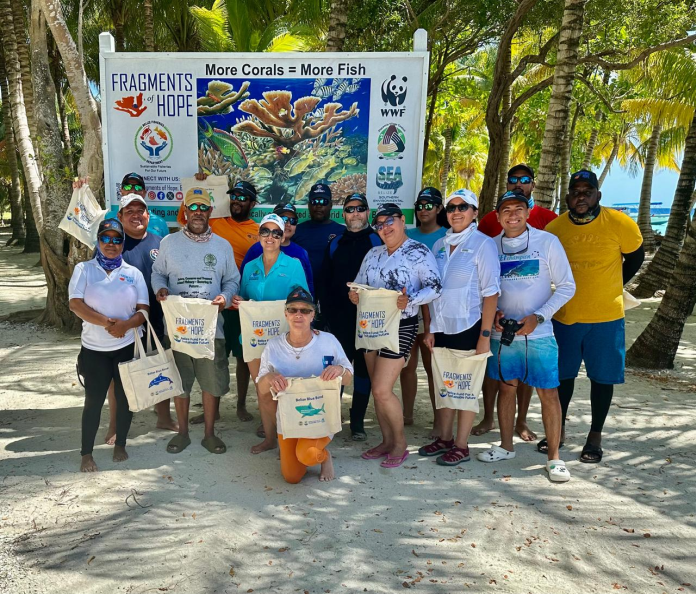BELMOPAN, Belize – On April 22 and 23, the Blue Bond and Finance Permanence Unit, Office of the Prime Minister, hosted a two-day mission with the Belize Fisheries Department (BFD) to meet with on-the-ground partners in Southern Belize who are grantees from the conservation funding under the Belize Blue Bonds.

On April 22, the team met up with the Mote Marine Laboratory & Aquarium, who has been instrumental in providing important scientific information for the sustainable use and conservation of sharks in Belize. Mote Marine Laboratory & Aquarium is an independent, non-profit research institution founded in 1955, based in Sarasota, Florida, and has more than 20 world-class research programs studying oceans, with an emphasis on conservation and sustainable use of marine resources.

The shark tagging activities being carried out in the south are in collaboration with the BFD and local licensed shark fishermen.
Sharks are considered iconic and important apex predators in healthy marine ecosystems and are considered threatened many parts of the world, including the Caribbean due to overfishing. In Belize, sharks have gained increased protection and scientific attention and a recent international shark meeting held in Placencia, Belize, lauded the progress in shark conservation and the positive impacts such measures are having on their population.
On April 23 Lisa Carne, founder of Fragments of Hope (FoH) Belize and her team, along with Professor Less Kaufman of Boston University, led discussions on the status of coral reefs in Belize, areas for management and conservation intervention and an orientation to the organization’s restoration work.
Fragments of Hope is a not-for-profit community-based organization registered in 2013 in Placencia Village, Belize, and is Belize’s primary organization focused on the challenge of coral reef restoration and advocacy for the sustainable management of associated habitats. The team was able to observe firsthand the organization’s phenomenal 10-year effort in coral reef restoration around Moho Caye, which is now considered a restored area with the transformation of live coral reef from less than 4-10 percent to over 50-60 percent.

The team was also exposed to important areas of wild coral reefs that are currently used as “seed banks” for the restoration work by FoH and have been identified as areas critical for protection as we work towards realizing the national target of protection for 20 percent of Belize’s reefs given their important role for maintaining biodiversity, livelihoods and climate change.
The mission has created opportunities for greater collaboration and partnership between the government of Belize and on the ground, NGO partners to maintain the health and functional integrity of Belize’s ocean space for the benefit of nature and people.





